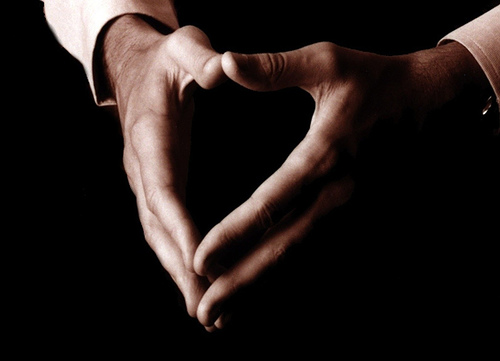 At a piano lesson this week, I observed my student grow increasingly frustrated with herself whenever she made a mistake. She would “growl” at herself and start back at the beginning of the phrase.
At a piano lesson this week, I observed my student grow increasingly frustrated with herself whenever she made a mistake. She would “growl” at herself and start back at the beginning of the phrase.
After observing this continue for a few moments, I decided to stop her and address the issue.
There were three reasons why I decided to address this issue:
- She was growing increasingly frustrated with herself. And frustration doesn’t usually yield positive results.
- I could tell this was becoming a habitual response. When she is practicing at home, she is obviously doing the same thing there.
- We were sight-reading. She had never seen this piece before, and there was no reason that she should expect to play it perfectly upon first try. She is only 7, and hasn’t had much experience with sight-reading yet anyway.
Now, I am a fan of students who play well, with no mistakes. But I am also a fan of having fun. My fear was that this little 7-year-old would lose her motivation for piano because she’s frustrated with herself for making mistakes. I don’t want that to happen, so we had a little chit chat about making mistakes.
I believe that learning is all about messing up and making mistakes. I mean, it’s impossible to be learning anything new if you can already do it perfectly. And isn’t that what practice is for anyway? To figure out how to improve and get rid of mistakes? Sometimes, you have to accept the fact that you are going to make mistakes. It’s only through accepting those mistakes that you can allow yourself to improve. It’s all part of the process.
It’s hard to be “okay” with mistakes. I think it’s even harder for us as adults. Personally, I feel that this is one of the hardest things about teaching piano to adult students: they are SO hard on themselves.
But I digress.
My overall message to my 7-year-old student? Don’t be so hard on yourself. Mistakes are not necessarily a bad thing. This is not what piano is all about anyway. Piano is about having fun, learning how to play the instrument, and learning how to play exciting pieces in an exciting way. So, keep it fun!
Photo credit: TheAlieness GiselaGiardino²³ | CC 2.0



Thank you for this Joy. This is something that I deal with quite often with a few of my students. I started realizing that it’s the exceptionally bright kids that get the most frustrated at their mistakes. My theory? They’re so used to things coming so easy to them that when they learn to play the piano and realize that it is NOT easy, it is very frustrating to them. I have had similar conversations as you had with your student. I recently told a student that if she could play the piece perfectly the first time, then I was not giving her the right material to work on 🙂 It seemed to help a little. 🙂
I think you are right – students are sometimes pretty surprised at how challenging the piano can be! Thanks for the comment!
I also struggle with students who lose motivation by making mistakes. I show disapproval when they are angry, and show extreme approval when they display any positive emotion. With younger students, I teach them how to diagnose and correct their own mistakes so that they feel less helpless and victimized whenever they inevitably make one.
I was a student before and my teacher would do so mamy demonstrations to show me… well, I KNOW HOW TO DO IT… just that i needed some time to get used to it , OK???
Well, now when I see such a situation, i will look at the student and laugh about it… I think that’s all they needed… a smile or laugh about it… I saw the improvement after that… the student eventually willing to do it repetitively without frustration….
So true, Valerie! When the teacher gets frustrated, it just causes the student to become MORE frustrated. A smile or a laugh can do so much good! =)
I started piano at age 8 with a local teacher. I began strongly – I even developed actual pitch by learning the note names as I played. But I got the biggest “lesson” the first time I couldn’t get a new technique right. I got angry with myself – and my teacher got angry too – with me!
Big mistake, Teach. She lost a student and music lost a pupil. No more music for 4 years. As far as I was concerned, it was for people who were willing to get stomped on and call it motivation.
I promised myself that if I ever did go back to music, I was not going to play by anyone’s rules – only the music’s. At 12 I began teaching myself saxophone, and at 13, clarinet. I did okay until I started losing auditions and chairs because I couldn’t read. Then later, when I could read, it wasn’t enough – it had to be at sight.
By college time, it was obvious that musicians who were willing to submit to the traditional teaching were going much farther than I with less talent.
I eventually carved out a nice niche for music in my life, playing jazz semiprofessionally. But it always nagged at me that people who were willing to do what I wasn’t kept busier in music – and got more respect. As far as I was concerned, it was because they were willing to stomp harder on themselves for the sake of their playing.
I didn’t see why it had to be that way, though. Deep down, I still don’t. I finally got some self confidence about sight reading – after 30 years! – when a bandleader took a chance on me and was forgiving enough to let me work several gigs with his reading band. It was the first time I hadn’t choked up in that situation.
Now I am taking freshman college theory and ear training courses in my 40s. There are still nagging doubts, when a professor gets a little shrill or impatient, that getting stomped is a basic requirement in music. But I am going to reserve judgment for a little longer – after all, I’m a grownup, I’m there for my own benefit and I don’t have to sit still for any nonsense!
But my other responsibility is to watch out for my OWN nonsense – that I can’t learn this or practice that. That will be my biggest challenge – myself. The music part will be easy after that!
Thanks for sharing your story, Paul. I’m glad to hear that your experience with a not-such-a-good-fit teacher as a kid isn’t holding you back anymore today!